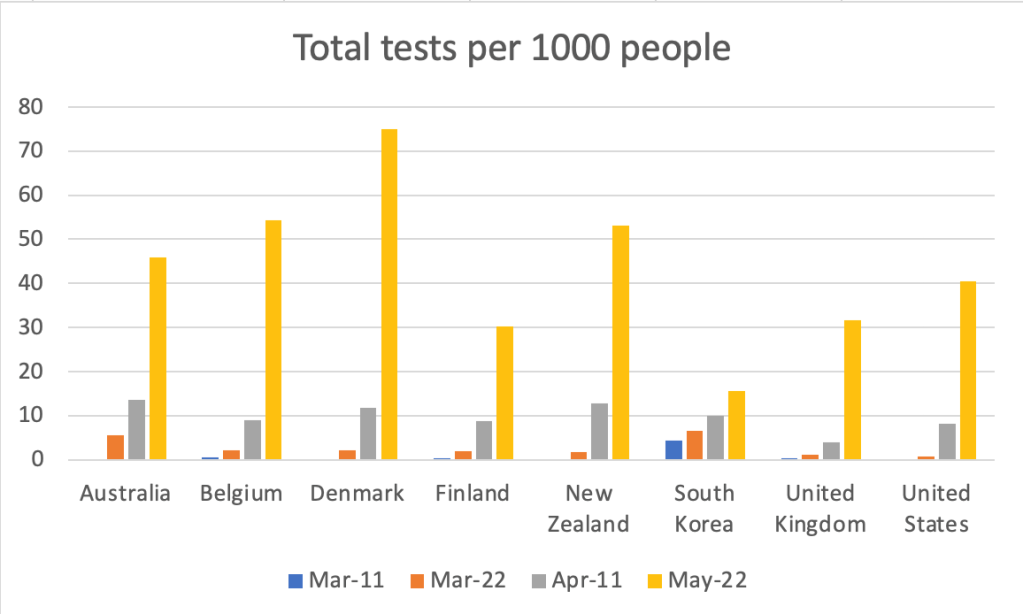Chris Game
In a recent blog entitled ‘Elections in a pandemic’ Jason Lowther concluded, along with the great bulk of surveyed council Returning Officers and Chief Executives, that ‘Super Thursday’ on May 6th may not be a great idea. Over 5,000 representatives in 4,300-plus separate ballots, including councillors in 150 English councils and the London Assembly, 13 mayors, 40 Police and Crime Commissioners, plus the Scottish Parliament and Welsh Senedd, town and parish councils, and the odd local referendum – to complete what might well be our “most complex elections ever”.
On balance, and notwithstanding that well over 100 countries have managed to hold significant public votes over the past 13 months, Jason’s conclusion was that, while:
“as always, local government will rise to the challenge if the decision is to go ahead in May, … the Westminster government … might be wise to start contemplating a Plan B.”
I happen to agree, although I can’t pretend to share the “incredulity” of those council chief executives Jason had consulted “that the Government seems unwilling to seriously consider delaying until October”. Indeed, it serves as the starting point for this blog.
Postponement of ‘Super Thursday’ – including now probably the Hartlepool parliamentary by-election – would still be perfectly feasible. It would reassure at least some potential voters, and almost certainly increase turnout – as evidenced in a recent online survey by Hope Not Hate, the anti-racism charity, and the National Education Union, as part of their #MAKEVOTINGEASIER drive. Over a quarter of respondents felt the Covid-19 situation would make them less likely to go to the polling station to vote, rising to around 40% of ethnic minorities and the largely unvaccinated under-25s.
Ah, but, Government Ministers and the Electoral Commission probably responded, you didn’t describe polling stations’ additional safety measures, and how easily – if you remember and have a working printer handy – you can apply for a postal or proxy vote by April 20th or 27th respectively.
But detailed dates aren’t the real issue. Last year’s postponement came on March 13th, this year’s current deadline is March 29th, and even could be stretched. But it won’t be, because those Ministers have nil incentive to jeopardise any political ‘vaccine bounce’, or #MAKEVOTINGEASIER for more young and ethnic minority voters to turn out and support mainly other parties.
Even that vanishingly small chance, though, is a big difference from Sunday’s Census, which passed its optimal postponement date sometime last summer – when Covid’s potential impacts were already apparent, leading the canny Scots and Irish to postpone their scheduled Censuses until March and April 2022 respectively.
The Chief Executive of the Scottish Public Record Office, National Records of Scotland, described it as “the right decision”, as it has surely proved. Scottish academics, or at least some, disagreed – one labelling it “an act of scientific vandalism”, while “the country’s leading historian” (name in URL), almost incredibly, could “not understand how the incidence of coronavirus in a year’s time would affect the collection of census data in Scotland” – which even then made you wonder what he thought the purpose of the Census actually is.
Speaking as a definitely non-leading academic, and nowadays merely tax-paying UK citizen, I can honestly claim to have applauded the Scots’ July decision at the time, and, as circumstantial witnesses, would call on the undergrad students to whom I once taught ‘Research and Measurement in Public Policy’. I offered to bet the class of 2000/01 that that April’s Census would be the last traditional count-everybody-on-a-random-Sunday Census of its type, and that by 2011 we would have followed the increasing number of at least European countries who even then were switching to alternative, more efficient, flexible, and significantly cheaper methodologies.
I would have lost hands-down, of course, but I’m not completely stoopid, and knew that by then they would have long left Birmingham, forgotten the bet, or both. Rather more importantly, though, the Scots’ decision and the questionable value of significant chunks of Sunday’s data should finally end the mythology of our 200-year old decennial event being uniquely capable of providing policymakers with the comprehensive statistical data they will require over the next decade.
Yes, mythology, in several ways. First, there is no ‘UK Census’ and never has been. Nothing to do with devolution. Right back to the first official census in 1801 – of England and Wales – it has always been censusES, with Scotland then Ireland in 1821 doing their own thing. Usually that has meant the four countries using the same arbitrary Sunday, asking similar but not identical questions, and separately processing and publishing their results.
Genuine UK-wide statistical comparability – “harmonisation of outputs” is the favoured euphemism – is a real struggle. Even the Office for National Statistics rated only half the last Census’s roughly 50 questions as ‘highly comparable’ across the whole UK. A quarter were ‘broadly comparable’, the rest ‘country specific’.
Sunday’s exercise, therefore, will be a sophisticated snapshot of Scotland-less pandemic Britain at the most exceptional, unrepresentative point in most of our lives. And costing close to £1 billion – much of it going to the Zurich-based Adecco company, for expensively recruiting and training 30,000 inexperienced ‘field staff’ for door-to-door ‘completion-checking’ – a further Covid-model scandal in itself.
The Scots’ foresightful postponement obviously scuppers any genuine UK-wide comparability. It should, however, enable them to reconsider and potentially rephrase key questions and reduce obvious pitfalls: over-counting those working from home; under-counting street homelessness, the unemployed – by excluding the ‘furloughed’ – and the vulnerably housed; miscounting travel-to-work patterns, migrant workers, early availability for work, and our own university students.
Then there are potentially hugely important new questions – on vaccination perhaps, place of work, mode of travel-to-work, travel days per week. Plus the opportunity to get some existing ones aired and re-clarified – why Britain’s Jews and Sikhs aren’t treated as separate ethnic groups, for example, and the really rather basic difference between a person’s sex and their gender identity.
We know this Government doesn’t like gender self-identification, but that hardly justifies muddying its Census guidance. It was only finally sorted last week, thanks to the crowd-funded campaign group, Fair Play for Women, and a High Court judge – after an estimated 3 million of us had, albeit prematurely, completed our forms.
To clarify: ‘sex’ is one’s legal sex, as registered on birth or gender recognition certificate – but not necessarily one’s passport, which, like a driving licence, is alterable without a formal legal process, and so, contrary to the original Census guidance, NOT technically a legal document. Gender identity is an entirely separate, voluntary question for over-16 respondents. You’d think someone official over the preparatory decade might have clocked that – wouldn’t you?
All of which shambles surely means we may finally join – possibly as early as 2026 with an emergency, catch-up census – at least most other European countries in using census methodologies more appropriate to the 21st Century than the early 19th – more frequent perhaps, thus more continuously reflective of change, and significantly cheaper.
It is 50 years now since Denmark held its last ‘traditional’ census and started modelling the switch towards register-based – and in some countries five-yearly – censuses, with information on population, households and dwellings being continuously compiled in various registers, files and databases.
The UN Economic Commission for Europe, in announcing that some 15 countries have so far postponed planned censuses to some degree – just contemplate all that “scientific vandalism”! – suggests that approaching 60% of the 2020-22 round of European censuses will be at least partly register-based, leaving the UK, Ireland and mainly small and/or Eastern European countries with their ‘traditional, direct collection’ methods – plus France, forever proud in its exceptionalism, with its ‘rolling census’.
However, some Stop Press news from the Office for National Statistics: “We are investigating the feasibility of moving to a census based on administrative data after 2021.” Fingers crossed that they don’t rush things.

Chris Game is an INLOGOV Associate, and Visiting Professor at Kwansei Gakuin University, Osaka, Japan. He is joint-author (with Professor David Wilson) of the successive editions of Local Government in the United Kingdom, and a regular columnist for The Birmingham Post.

